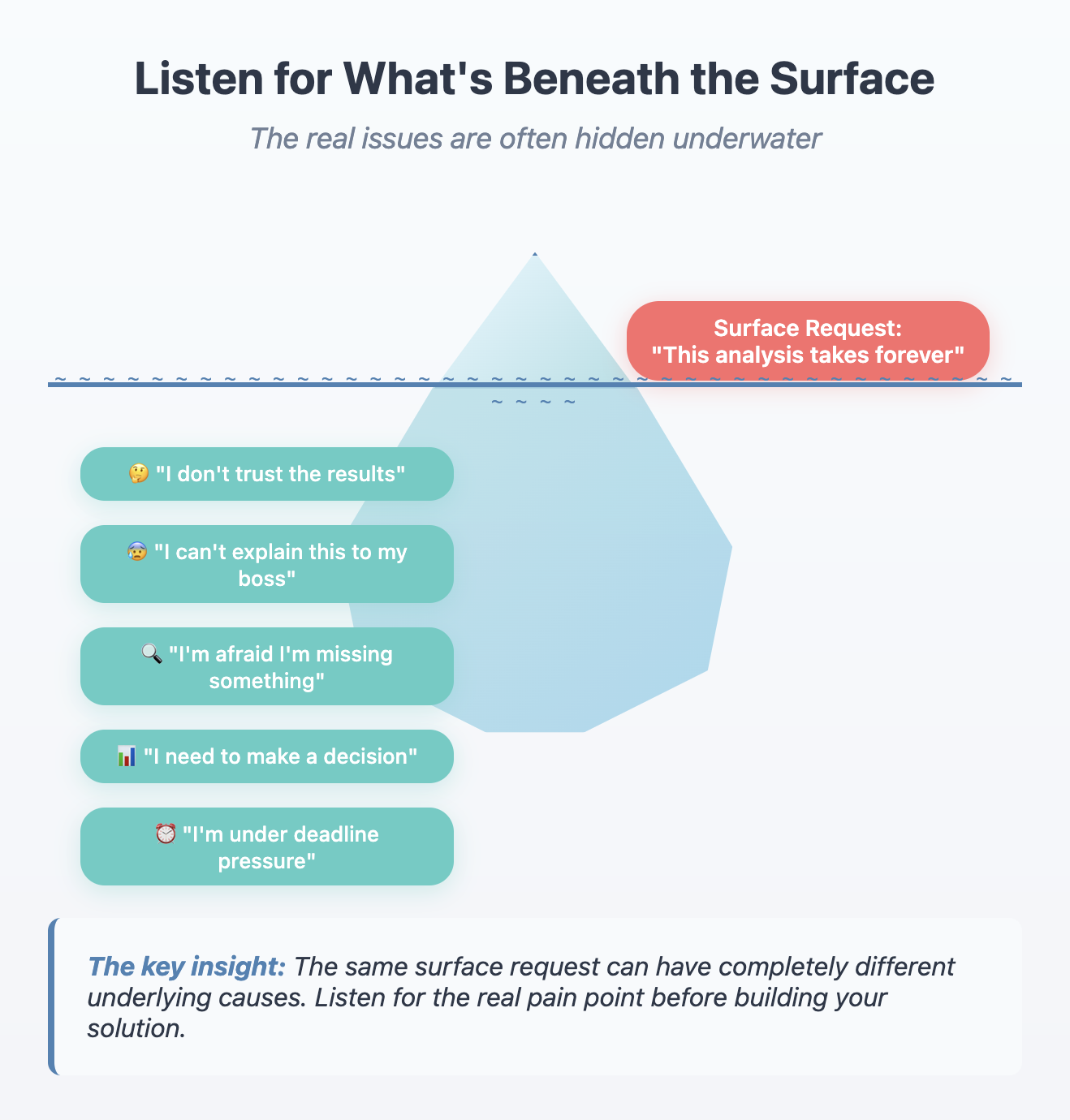The Power of Listening Across Teams

For most of my career, I’ve been the outsider.
The bioinformatician embedded in wetlab teams. The “computer person” in rooms full of bench scientists who’ve spent years mastering their craft.
I have valuable skills, but here’s what I learned: having technical expertise means nothing if you can’t connect with the people who need it.
➡️ THE MISTAKE I USED TO MAKE: Walking into meetings thinking, “I know exactly how to solve this with code.” Then wondering why my brilliant solutions gathered dust.
➡️ WHAT ACTUALLY WORKS: Listening first. Really listening.
When a scientist says “this analysis takes forever,” don’t immediately jump to “I can automate that.” Ask: “What part feels most frustrating? What would success look like to you?”
Sometimes “this takes forever” means “I don’t trust the results” or “I can’t explain this to my boss” or “I’m afraid I’m missing something important.”
The technical solution for each of those is completely different.
🌟 EMPATHY IS A TECHNICAL SKILL I’ve learned that dismissing someone’s pain points—even when they seem “solvable” to you—is the fastest way to lose credibility.
When a postdoc says “I’ve been struggling with this analysis for weeks,” don’t say “that’s easy, just use this tool.” Say “that sounds really frustrating. Walk me through what you’ve tried.”
Their expertise in their domain is as real as your expertise in yours. Respect that.
🚀 THE BREAKTHROUGH MOMENT: When you stop being the person who “fixes things” and become the person who “understands problems,” everything changes.
Scientists start coming to you with their real challenges, not just their surface requests. They trust you with their uncertainties, their experimental constraints, their career pressures.
That’s when you can build solutions that actually matter.
Being the outsider isn’t a disadvantage—it’s your superpower. You see patterns they can’t see, you bring tools they haven’t considered. But only if you earn the right to be heard by truly listening first.
What’s your experience working across different disciplines? How do you build trust when you’re the “outsider” on a team?